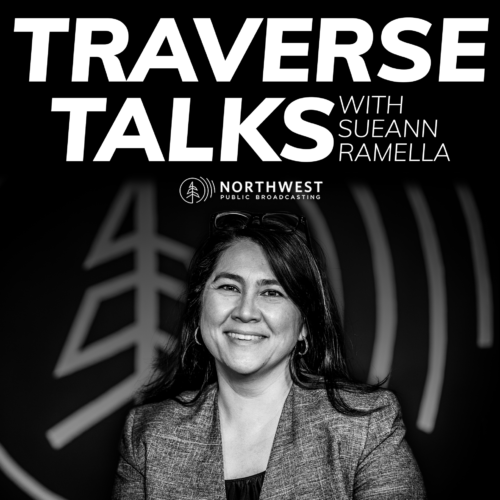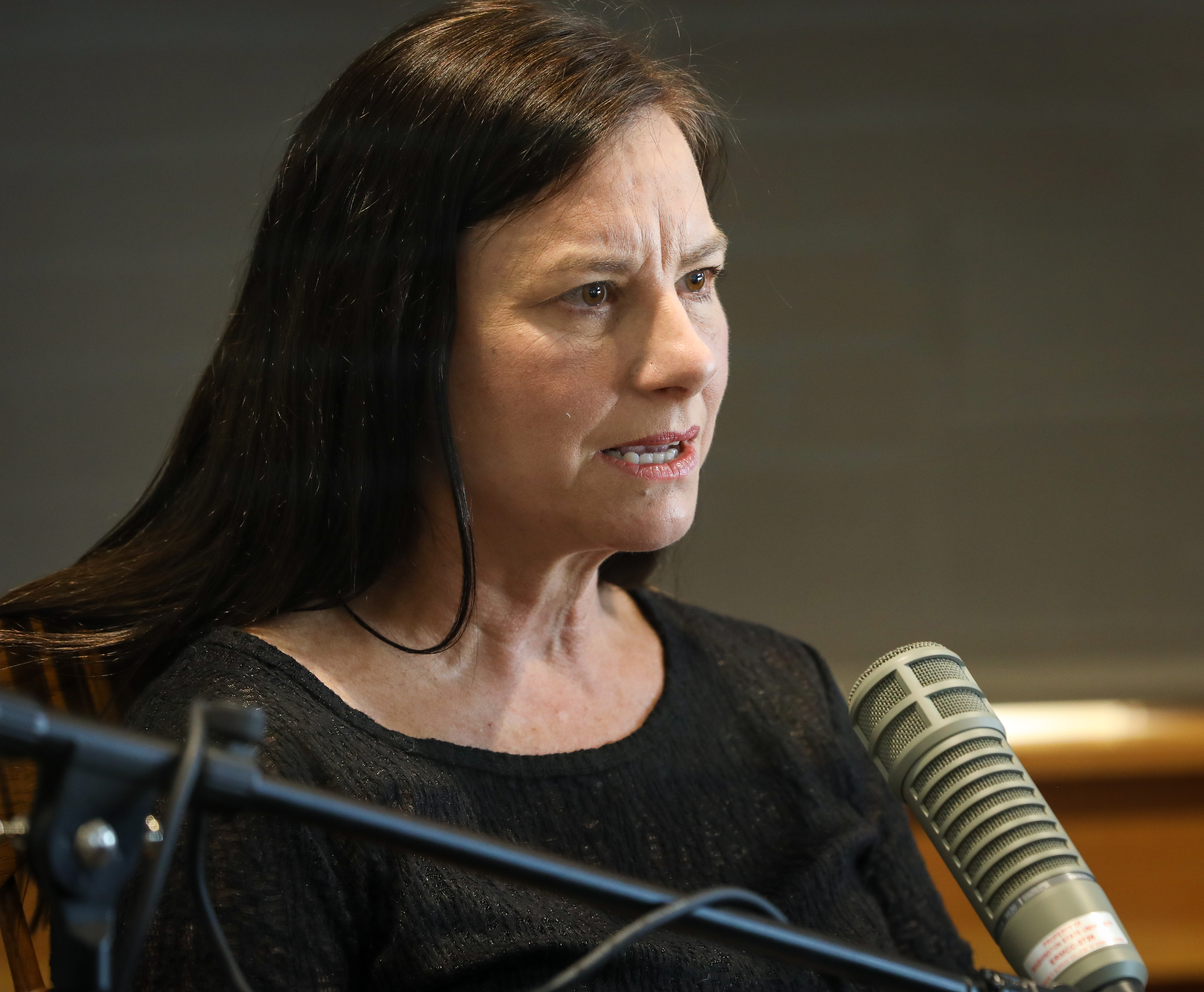
Is Your Brain Like A Computer? ‘Traverse Talks’ Episode 34 – With Retired Major General Sarah Zabel

Sarah Zabel is a retired U.S. Air Force major general and former vice director of the U.S. Defense Information Systems Agency. After witnessing one of her best friends experience a sharp decline in mental health, she decided to embark on a journey to better understand depression so she could talk about it with her friend. After a deep dive into the subject, Sarah authored the book, “Fighting Chance: How Unexpected Observations And Unintended Outcomes Shape the Science And Treatment of Depression” in hopes of helping people like her understand depression better. The book outlines the inner workings of the human brain in a computer-like fashion and interlaces real life examples of people who have suffered from depression.
In this episode of Traverse Talks, Host Sueann Ramella and Sarah Zabel discuss the realities of depression, changes being made in the military, Sarah’s own personal experience misunderstanding mental health needs while she served in the Air Force and how much she’s learned since.
SUBSCRIBE: Spotify / Apple Podcasts / NPR One / YouTube
Listen
Conversation Highlights:
It’s Not All In Your Head – “Mental Illness Is A Physical Illness”
Sueann: …What are some things that you think need to change in the way society views, let’s just say depression?
Sarah: Right, I think that society needs to understand that mental illness is actually, it’s a physical illness. There are physical things happening in the brain, the brain is an organ, and it’s not a choice, it’s not a personality quirk. And if people understand that, then they can be less judgmental about, let’s say depression. It’s not just like, oh, you know, the person is down, she needs to cheer up. You know, just, “Hey, be happy.” You know, as if you were doing it by choice. So understand that mental illness is physical illness, understand that there’s a huge variety of treatment options. And since what you need to do is affect the physical fabric of the brain in order to get better, I think people ought to be more open to the variety of treatments that are out there.
Sueann: From what I read out of your book, it’s seeing a psychotherapist or therapy, Or cognitive behavior, the medication, exercise and diet. I mean, Sarah, it seemed to me that it’s almost a miracle more of us don’t have depression because of the myriad of factors that could lead somebody down that road.
Sarah: So one of the huge factors that will move a person towards having depression is chronic stress. And if you think about what’s been going on in the last two years, you know, with COVID and our response to COVID. So people lost jobs, they had to worry about finances and they had to deny themselves social contact. For a long time, people were not able to go outside, not able to exercise and eat like they wanted to. So we added on the bad, you know, chronic stress, not to mention worrying about your own health and the health of loved ones. So you got chronic stress, and adding to the bad side, and you’re taking away the things that we know would be good… I mean, now if we were doing it all again, we’d do it differently, we know more, but it is what it is now.
Sueann: It is what it is. And now we have to wait and help those recover.
Sarah: Well, first of all, understand they didn’t choose it. They didn’t just like cop a bad attitude when COVID shut down their lives. They underwent physical changes and they’re gonna have to undergo physical changes to get back up to normal.
Sueann: And sometimes I wonder if we have such a disconnect from recognizing that we’re animals.

Sarah Zabel listens to a question before answering.
Sarah: Yeah, that we should just be able to overcome this. We should be able to outsmart it and just not be affected.
Sueann: I’m too strong for that, that’s not gonna happen to me.
Sarah: And that’s a big issue. Concepts of strength and weakness, where let’s say feeling down, or even getting so far as to develop a mental illness is perceived as weakness. Even by, like you mentioned, some of the victims of a mental illness didn’t want to see it, didn’t want to admit it, because they felt it was weakness. That they should just be able to power through and get better and not take drugs, not talk to somebody.
Is Emotional Maturity Valued In The Military?
Sueann: You’re in the Air Force. And you were drawn to the IT world and security, correct?
Sarah: Yes.
Sueann: So those are two levels of careers that are pretty male dominated. How does Sarah Zabel deal with that and become a major general?
Sarah: Well, sometimes it helps to be weird. I mean, it breaks expectations when, okay, the general is coming, or the colonel or somebody important in the military is gonna walk into the room, and it turns out to be a woman. Then all of a sudden, you know, whatever you were expecting, you suddenly realize, wait, something’s different here. So that kind of gives you an entry into change, you know, into doing something different or being something different. And, you know, you kind of smashed an expectation as you walked into the room. So now the door’s wide open, you know, what’s gonna happen here? So good things can happen. Bad things can also happen, but good things can happen.
Sueann: Ah, I like that. Did any bad things happen to you?
Sarah: Oh, not terrible.
Sueann: Oh good. Were you belittled?
Sarah: Condescended to, sometimes, but I think it kind of all washes out ’cause I’m sure there’s sometimes and I was benefited by, oh wait, we need a woman in the spot, I think it’s-
Sueann: It balances.
Sarah: It balances.

Sarah flashes a bright smile to Sueann.
Sueann: Diverse thinking though, I appreciate what I heard, I have no idea who said this, but they were talking about changes in the military, specifically Marines that they realized having young, mostly males who are 18 years old may not be the future of what we need for war or protecting our country, that we need older people who their brains had developed past, right? And then they also said something like that about policing. However, this is gonna sound super, super stereotypical. I feel as if women may have a leg up on that mental maturity level. So I almost wonder if that’s something we should do in the military more, is get some ladies in there to help figure out things.
Sarah: I think it’s moving that way. And I think if you look at what the military has done over time, so imagine World War I or even World War II in the trenches where you want someone to grab a rifle, run up a hill and start shooting people. And half of them won’t make it, that’s not-
Sueann: That’s young men.
Sarah: That’s young men. Frankly, that’s young men, and you’re not benefiting from a lot of emotional maturity on that. In fact, it might be a negative if they say, oh no.
Sueann: Why am I doing this?
Sarah: What? Yes, but war in the modern day is thought differently. There’s a lot going on in cyber. There’s a lot going on in the intelligence that you get to see what’s going on with the enemy. What are they doing? There’s a lot that goes on in the public eye. I mean, look at what’s going on in Ukraine and we are watching what’s going on in Ukraine. And our country’s responding to it in ways that are not military because we have that constant journalism presence, we see what’s going on and people see it and are reacting to it. So it’s different, war is different now.
The Difference Between Disorders And Disease:
Sueann: So back to your book, you spoke to so many people about their personal experiences, with different levels of different types of mental disorders or disease. I took away too, that we need to really decide, disease is when we know what is causing it, but disorder-

Sarah explains her thoughts to Sueann.
Sarah: Disorder is there is something that is messing with your life. And disease, I think it’s, I don’t know, kind of, yes, in order to call it a disease, we need to know what causes it. To me like, okay, I will accept that as the definition and I’ll put it in the book, is that’s the definition of disease. Disorder means that it’s not only that you, well, you know, you read about the symptoms of depression, what depression involves. So of course you have the really sad mood or loss of pleasure in everything, those are key. You know, one of those has to be present. But then people also either often sleep too much or they can’t sleep, they eat too much or they can’t eat, they have trouble remembering things, their minds, you know, just won’t work. It’s a whole slew of symptoms. So you could have some of those symptoms and just be living your life and doing fine. It’s a disorder when there’s enough and it’s bad enough that it’s messing with your life.
Sueann: You’re not functioning the way you used to.
Sarah: You’re just not functioning, and it matters. It’s like your family’s falling apart. Or you’re doing really poorly at your job and you’re worried about your job or that, you know, like you stop eating and stop sleeping enough that you’re physically ill as well as, you know, mentally. So I hope someday they understand enough about it to make it a disease. Well, to me, it’s like, “Yay, it’s a disease now.” We know more, that’s what it means.
Sueann: I hope so too. And you mentioned in the end of the book that if this was written 10 years from now, you were confident that it would be a completely different book, because more would be known.
Sarah: Oh, yeah.
*Question and responses were edited for length and clarity.
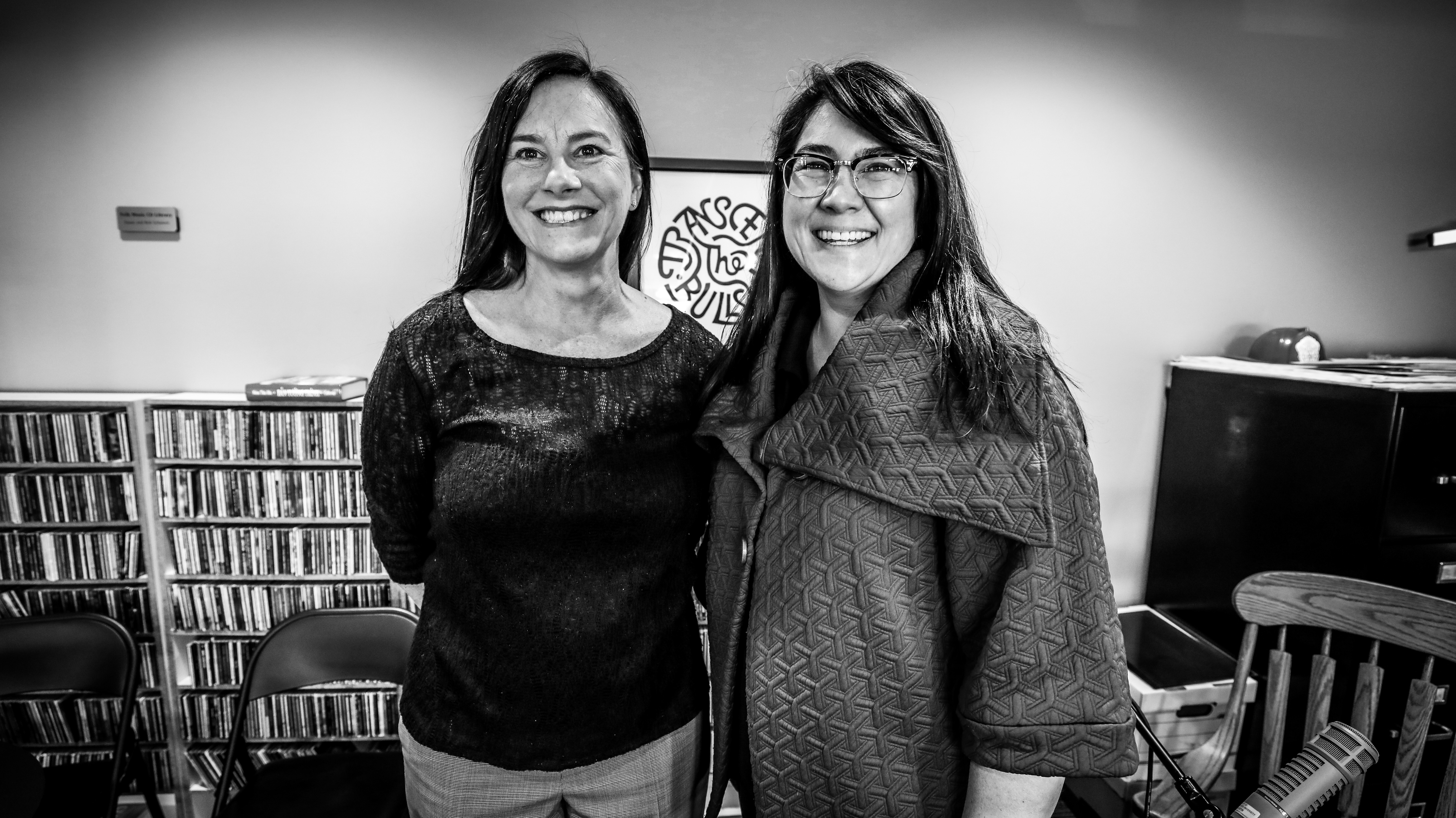
Related Stories:

Captive Returns Home: The Story Of Wetxuuwíitin – ‘Traverse Talks’ Episode 42 – With Chairman Samuel Penney
Photo of Sam Penney recording Traverse Talks at the Nez Perce National Historic Park on March 10, 2022. Imagine a stranger took your family’s heirlooms and then offered you an
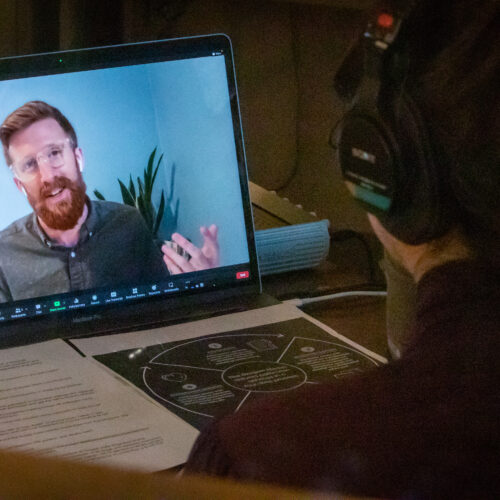
Psilocybin: Psychology, Policy and Possibilities – ‘Traverse Talks’ Episode 41 – With Sam Chapman
Sueann Ramella interviews Sam Chapman virtually on April 19, 2022. What do you really know about psilocybin, commonly known as magic mushrooms? Research on the substance has lagged behind in
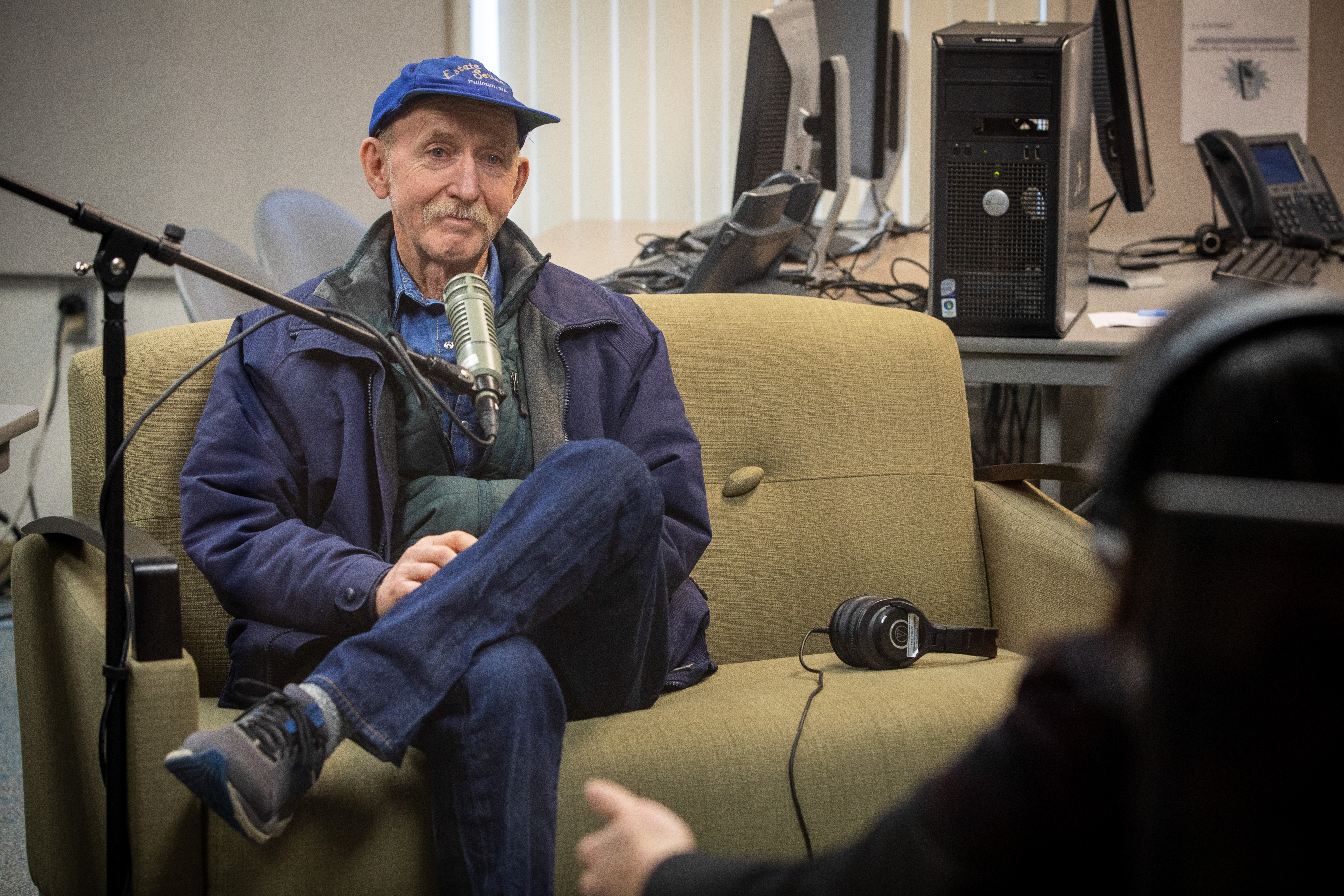
You Inherited A House Full Of Stuff. What’s Next? ‘Traverse Talks’ Episode 38 – With Estate Services Owner Rich Old
Rich Old recording this episode of Traverse Talks on March 3rd, 2022. Grieving the loss of a loved one is already hard enough. To make matters worse, many people have

